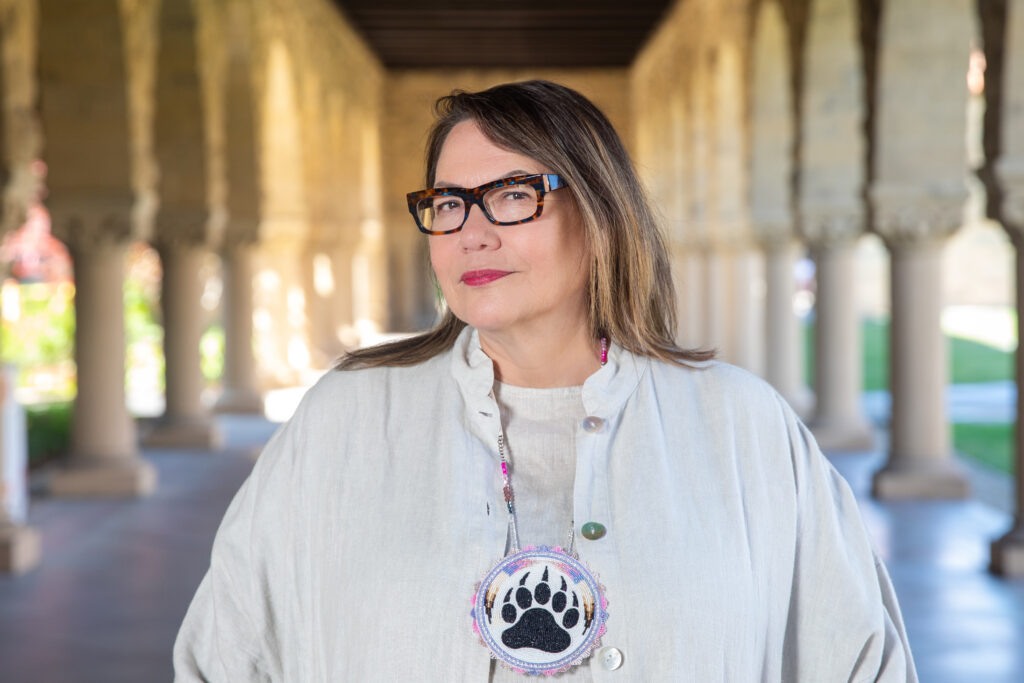More than 3,000 participants attend Minneapolis event

The “Bad Press” documentary roundtable provided insight on the lack of transparency in tribal government.
Last week, the Society of Professional Journalists, SPJ, Native American Journalists Association, NAJA, and the News Leaders Association, NLA, held a virtual roundtable to discuss the recent documentary “Bad Press.” Prior to the announcements during Sunshine Week, I had never heard of this documentary – but I want to be informed, and I want to educate myself as much as possible on what is happening on press freedom within Indian Country.
The only presenter I knew was Jodi Rave Spotted Bear, the chair of SPJ’s Freedom of Information Committee and founder and executive director of the Indigenous Media Freedom Alliance. My work with Buffalo’s Fire has allowed me to get to know Jodi and all the work she is doing in North Dakota, the Fort Berthold Indian Reservation, and across Indian Country.

Through the roundtable, I got to meet some truly remarkable individuals – Angel Ellis, the director of Mvskoke Media and NAJA Elias Boudinot Free Press Award winner and advocate for tribal free press, Rebecca Landsberry-Baker, the executive director of NAJA, who made her directorial debut with the “Bad Press” documentary, and her co-director Joe Peeler, who is a Sundance award-winning director and editor whose work has appeared on Netflix, HBO, FX, ESPN, Hulu, and CBS.
“Bad Press” debuted at the Sundance Film Festival in January 2023.
The 98-minute documentary follows Ellis in Okmulgee, Okla., where she reports for Mvskoke Media. The documentary itself covers a span of four years, during which time the 2015 Free Press Act is repealed, challenging Ellis and her colleagues, who believe in truth and transparency and aren’t afraid to challenge the integrity of questionable tribal officials.
Ellis’ desire to give her readers access to all information relevant to the Muscogee (Creek) Nation becomes strained when Mvskoke Media’s independent editorial board is dissolved, and the newspaper is placed under the direction of the Secretary of the Nation and Commerce – which is when her real fight begins.
Landsberry-Baker and Peeler tell Ellis’ empowering tale using humor, humanity, and showcasing the various twists and turns that can come about when the Native community fights for transparency and access to information, especially when trying to hold their government accountable for its actions.
During the roundtable discussion, I found myself identifying with Peeler. He acknowledged being an outsider on the project – the white guy – who had no ties to the Native American culture. But it was an asset to the project, as pointed out in the discussion by Ellis and Landsberry-Baker.
Peeler was able to use his outside perspective and help tell the story in a way all audiences can connect with – not just members of tribal nations.
I have found myself feeling the same way at times – the white girl – even though I do have lineage that extends distantly into the Blackfeet Nation, I was not raised to appreciate or even understand Native culture.
I have learned so much working with Jodi and Buffalo’s Fire, seeing first-hand that tribal news is often sidelined and kept from the front page of nationally syndicated sources. No matter how I identify – white girl, Blackfeet descendant, or Hoosier-born – what I do know is that these practices are not okay.
It is not okay for governments, tribal or otherwise, to cloak themselves and keep information from their people – which is why I have found a great passion in what Sunshine Week stands for, as well as what Jodi, Angel, Rebecca, and Joe are doing to shine light on the lack of transparency in tribal government.
“Bad Press” is coming to selected film festivals across the country, including the Cleveland International Film Festival. The in-person screening will take place March 27 at 7:25 pm EST, with a chance to stream it online for $14 from April 2-9 via CLIFF Streams.
The “Bad Press” documentary roundtable discussion is available for replay here:
Jodi Rave Spotted Bear (Mandan, Hidatsa and Arikara Nation)
Founder & Editor in Chief
Location: Twin Buttes, North Dakota
Spoken Languages: English
Topic Expertise: Federal trust relationship with American Indians; Indigenous issues ranging from spirituality and environment to education and land rights
See the journalist page© Buffalo's Fire. All rights reserved.
This article is not included in our Story Share & Care selection.The content may only be reproduced with permission from the Indigenous Media Freedom Alliance. Please see our content sharing guidelines.
Christine Trudeau remembers early journalistic beginnings in Albuquerque
This article was produced for ProPublica’s Local Reporting Network in partnership with Honolulu Civil Beat
ProPublica
Inspired by her grandparents, Tonah Fishinghawk-Chavez proves that caring for the community is an action, not just a word







